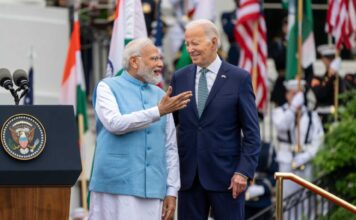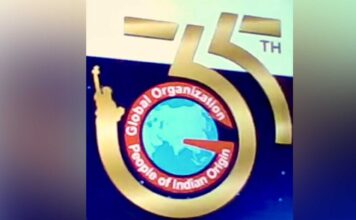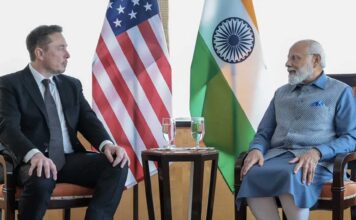The tycoons who tower over Hong Kong have lots of explaining to do. They’re trying, mind you. As the biggest protests in decades shake the business establishment, the billionaires who run the place are calling for calm, dialogue and the return of business as usual.
Nowhere, though, in their tweets, WeChat dispatches or press releases does one sense regret or self-awareness.
Instead, Hong Kongers are getting a rhetorical balancing act: feigned understanding, while struggling to avoid Cathay Pacific’s fate. Hong Kong Chief Executive Carrie Lam, meantime, is balancing keeping the tycoons happy, Chinese President Xi Jinping calm and the city’s stock market from crashing.
Yet isn’t it time the government wrestled control away from the tycoons? Their collusion and greed keep property prices sky-high – well out of the reach of disillusioned millennials taking to the streets. And what better way to take them down a peg than with markets? The bond markets, that is.
Sound far-fetched? It’s not like Lam’s team is rolling in options to reduce the inequality tearing Hong Kong apart. Or to alter the collision course on which protestors find themselves with Xi’s Communist Party.
Miniscule debt
What Lam’s government does have is an enviably low government debt to gross domestic product ratio. By some metrics – including the International Monetary Fund and World Economic Forum – it’s less than 1%. That compares to America’s 109%, Singapore’s 111% and Japan’s 240%.
Lam could empower Finance Secretary Paul Chan to go on a bond-issuing tear. Issue tens of billions of dollars of IOUs – or more – and use the proceeds to hoard all available land. Use it to finance bigger reclamation projects to bring more land online in the New Territories, in the vicinity of Shenzhen and elsewhere through the special administrative region.
And where possible, make the tycoons offers they can’t refuse to sell lots to the government. All financed with new government borrowing. Think of it as a variation on the “bond vigilantes” dynamic that can police bad economic policies.
Normally, it’s traders punishing governments that over-borrow or step on secondary trading with draconian regulation. Many will trace this back to the early 1990s, when James Carville, an adviser to US President Bill Clinton, quipped that after death: “I want to come back as the bond market. You can intimidate everyone.”
Yet rather than punters, here’s a chance for the government to police a policy mix hurting most of the population.
Past Hong Kong administrations built this system, of course. Since the 1997 handover back to China, governments ricocheted from crisis to crisis. Asia’s 1997-1998 meltdown had speculators testing the currency peg. The SARS trauma of 2003 slammed property prices. The 2008 “Lehman shock” devastated markets anew, followed by the 2013 Federal Reserve “taper tantrum” and now Donald Trump’s trade war.
At every turn, the impulse was to protect the status quo. Protect property and stocks to support confidence, investment flows and GDP. That means protecting the oligarched nature of an economy that prides itself on being the world’s freest. It also means preserving a system that had long stopped working for most of Hong Kong’s 7.4 million people.
More affordable flats
Lam’s team needs to diversify the economy. The best way is to nurture the next wave of tech unicorns. That is, if twenty-something disruptors could afford Hong Kong office space. Bringing more affordable flats and commercial units online, and fast, should be a bigger priority. So should issuing piles of new debt to finance the democratization of the economy
Economist Andy Xie is hitting the airwaves to argue in favor of pulling economic power away from the tycoons. “Hong Kong has been a pressure cooker for a long time” as stratospheric housing prices foment social discontent,” Xie told CNBC recently.
Xie’s concerns echo comments none other than Li Ka-shing made in 2014 amid the “Umbrella Revolution.” Back then, Hong Kong’s richest man told students at China’s Shantou University: “I fear that widening inequality in wealth and opportunities if left unaddressed could fast become ‘the new normal.’”
The five years since proved Li’s “Sleepless in Hong Kong” speech right. Li, to his credit, has been a more neutral – less sycophantic toward Beijing – in his calls for “love” in the city. But as economist Xie points out, sky-high property prices engineered by tycoons are still exacerbating social tensions.
“The Hong Kong government is not really in charge [even though] most people think that they need to listen to Beijing, but perhaps more importantly, they are really influenced by the big property tycoons,” said Xie.
By 2018, charity network Oxfam warned the rich-poor divide in Hong Kong is at a 45-year high, a “particularly severe” disparity for a developed economy. Between the 2003 SARS crisis and 2019, property prices soared over 300%, according to the Centa-City Leading Index.
Though a succession of Hong Kong governments tweaked housing policies myriad times, Xi says, “in the end, they favor tycoons, giving the land to the tycoons. That is why 22 years after the handover back to China, Hong Kong is “in between – just a bunch of business people calling the shots.”
Why not let markets, not oligarchs, call the shots? Lam may not have use for those in the streets taking matters into their own hands. But the bond vigilantes – they could be just the thing to straighten out a city in the business of doing business.
.













